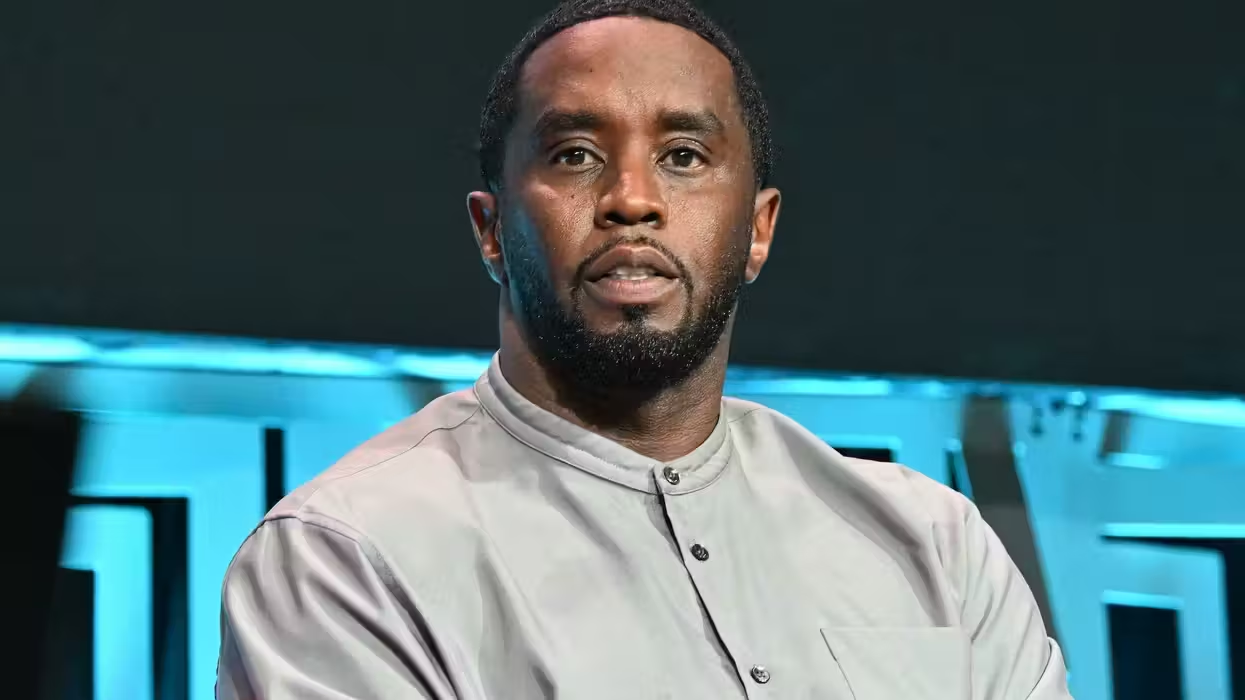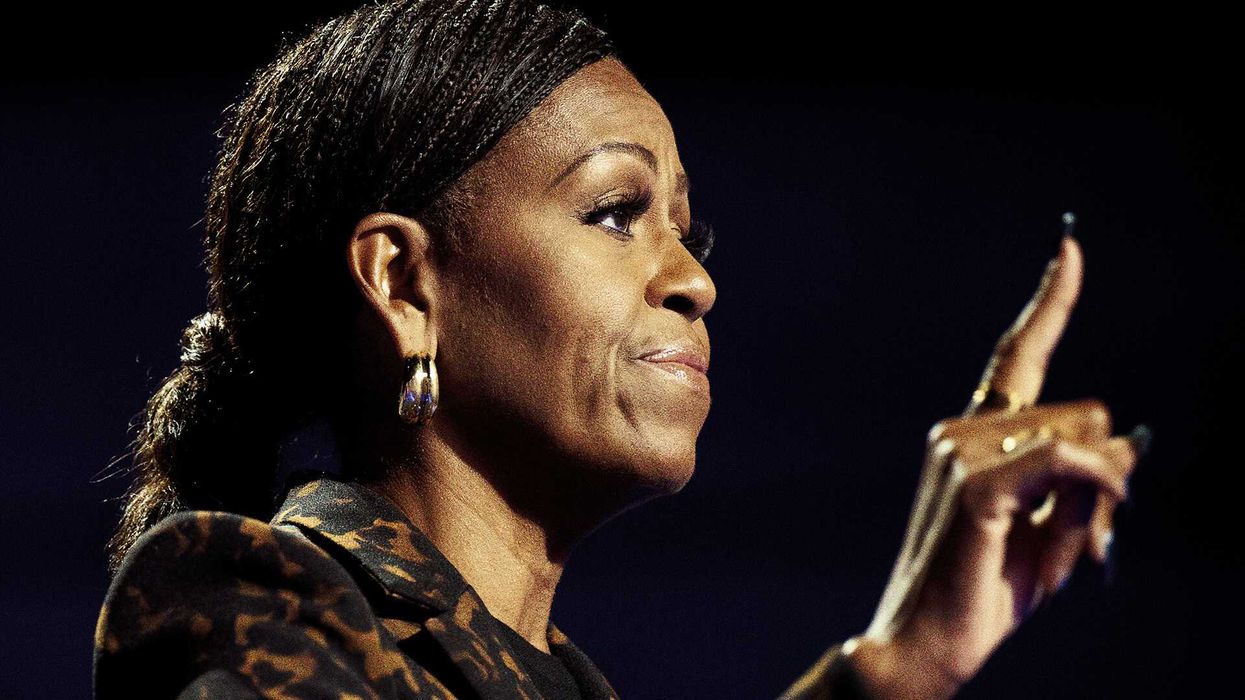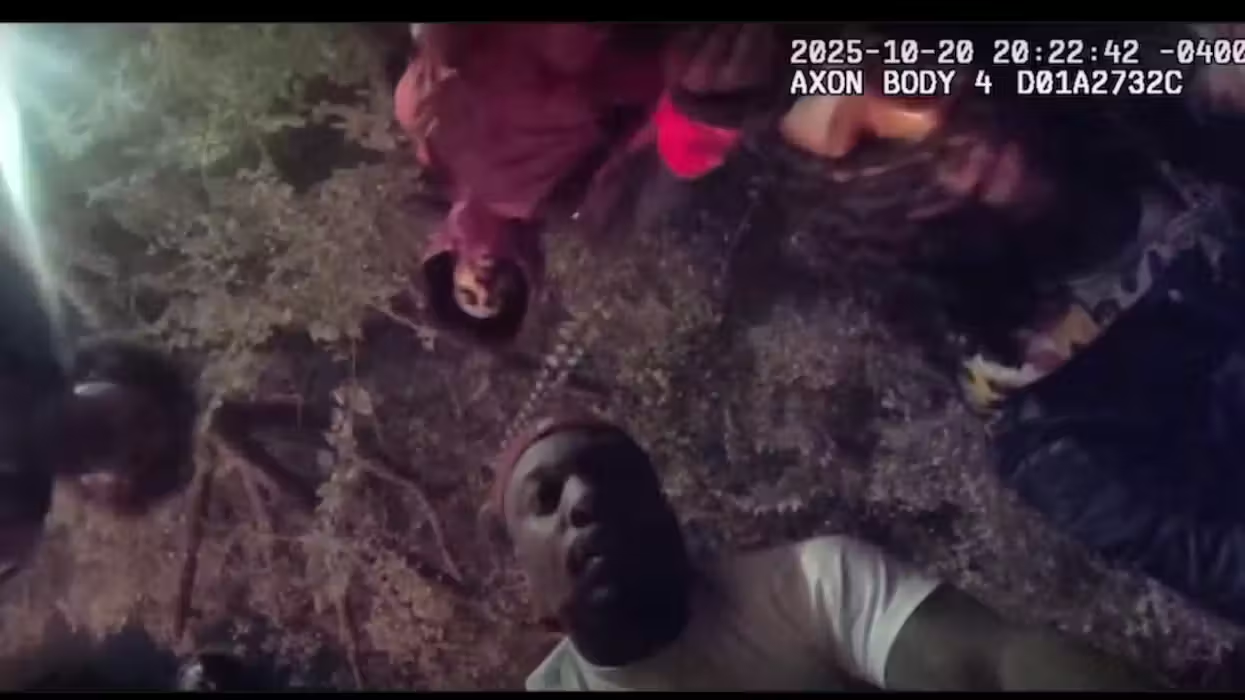WASHINGTON (TheBlaze/AP) -- President Barack Obama promises to explain in greater detail U.S. policy on the use of armed drones. But the administration's statements so far have only raised more questions about the controversial counterterrorism program, particularly the president's legal authority to kill American citizens.
Frustration over the ambiguity has resulted in unlikely political alliances on Capitol Hill, with liberal Democrats like Oregon Sen. Ron Wyden joining forces with conservative Republicans like Kentucky Sen. Rand Paul. And pressure from Congress is leading the White House to consider whether to disclose more information about the top-secret program, the existence of which the government only publicly acknowledged last year.
 President Barack Obama (Credit: Getty Images)
President Barack Obama (Credit: Getty Images)
Three Americans were killed in strikes in Yemen in 2011. The target of the first strike was U.S.-born al-Qaida leader Anwar al-Awlaki. American Samir Khan, an al-Qaida propagandist, was killed in the same attack, and al-Awlaki's son, Abdulrahman, was killed the following month.
Here are some questions and answers about the program:
Q: Why do Wyden and Paul object to the program?
A: "Every American has the right to know when their government believes it is allowed to kill them," Wyden said at a George Washington University panel on government secrecy. "The laws ought to be public all the time." He said there is no stated, public law authorizing the White House to target Americans. Paul raised similar objections when he launched a 13-hour Senate filibuster aimed at holding up the nomination of John Brennan to run the Central Intelligence Agency. Brennan previously served as Obama's top counterterrorism adviser and ran the drone program from the White House.
Q: What is the administration's legal rationale for killing U.S. citizens overseas?
A: Administration officials say the basis for the armed drone program derives from the president's constitutional power to protect the U.S. from imminent attack. The administration has also cited the Authorization for Use of Military Force, which Congress approved shortly after the Sept. 11, 2001, attacks, as legal backing for strikes against al-Qaida and its affiliates.
Q: Where is the administration's case documented?
A: The Justice Department, through its Office of Legal Counsel, has written memos more specifically outlining the case for targeting U.S. citizens. But the top secret memos have never been made public and were only recently shared with select congressional lawmakers.
 President Barack Obama (Getty Images)
President Barack Obama (Getty Images)
Q: So, it's all a secret?
A: A declassified version of the OLC memos, leaked to the media last month, offered the broadest glimpse at what the administration sees as its legal case for targeting Americans overseas. The government must determine that a suspect poses an imminent threat, that capture of the suspect is "infeasible" and that the strike must be conducted according to the "law of war principles."
Q: Are there any loopholes or conditions?
A: The memo leaves plenty of wiggle room. For example, it notes that the U.S. can determine a person poses an imminent threat even without having "clear evidence that a specific attack on U.S. persons and interests will take place in the immediate future."
"What appears to be limitations are in actual fact latitudes," said Hina Shamsi of the American Civil Liberties Union, one of the leading critics of the drone program.
Q: Can the courts order the government to release information about the drone program?
A: A federal appeals court on Friday rejected the CIA's assertions that it could not disclose any information about records it has on the drone program or even acknowledge that it has such records. However, the court did not rule that any specific information must be shared. Friday's ruling sends the case back to the lower court, where the agency can argue that the records it has on drones are exempt from Freedom of Information Act disclosure requirements.
 Credit: AP
Credit: AP
Q: Does Obama have the authority to kill an American citizen on U.S. soil?
A: Attorney General Eric Holder, testifying on Capitol Hill, did not rule out such a possibility but said he could only foresee that happening in an extraordinary circumstance, such as the 9/11 attack or the bombing of Pearl Harbor.
Q: Those are the only conditions?
A: Holder later sought to clarify, saying, as TheBlaze previously reported, in a brief letter that the president does not have the authority to use a drone to kill an American citizen on U.S. soil if that person is "not engaged in combat." But Holder's brief statement did not define what being engaged in combat actually means.
That leaves open a huge loophole, skeptics say. "Once you accept the battlefield is everywhere, it's very hard to draw lines," said ACLU civil liberties attorney Jameel Jaffer. Holder said the government has never used a drone to kill Americans on U.S. soil.
Q: How many drone strikes has the U.S. launched? And how many people have been killed?
A: The Obama administration has never publicly stated the scope of the drone program, leaving independent groups to cobble together data based on news reports and information from people living in the areas where the strikes occur.
Q. So, what do the outside groups say?
A: The New America Foundation, a Washington-based think tank, estimates the U.S. has launched 420 strikes in Pakistan and Yemen - the two countries where the strikes are believed to occur most frequently - since 2004. Between 2,424 and 3,967 people are believed to have been killed by U.S. drones, the majority in Pakistan.
Q: Were the people killed all suspected terrorists?
A: The New America Foundation estimates that roughly 21 percent of those killed are believed to be nonmilitants.
 President Barack Obama (Credit: AP)
President Barack Obama (Credit: AP)
Q: Do the families of those killed in drone attacks have any legal recourse, especially those who were not the targets of the strike?
A: The relatives of the three Americans killed in Yemen have filed a lawsuit in U.S. federal court arguing that the government violated the Constitution and international law when it authorized the strikes. The Obama administration has urged the court to dismiss the lawsuit, saying the issue is best handled by the government's political branches, not the courts
Q: What does the American public think of the drone program?
A: Americans are supportive of the use of drones on foreign soil. A Fox News poll conducted in February found that 74 percent of registered voters backed the use of drones to kill suspected terrorists in a foreign country. The level of support dropped to 60 percent when voters were asked whether they would support a strike against a U.S. citizen overseas.
The same poll found Americans were more skeptical about the use of drones in the U.S. About 54 percent backed drone strikes on suspected foreign terrorists in the U.S. Forty-five percent of registered voters said they approve the U.S. using drones to kill a suspected terrorist who is a U.S. citizen on American soil, while 50 percent disapproved.
--
Other Must-Read Stories:

 President Barack Obama (
President Barack Obama (




